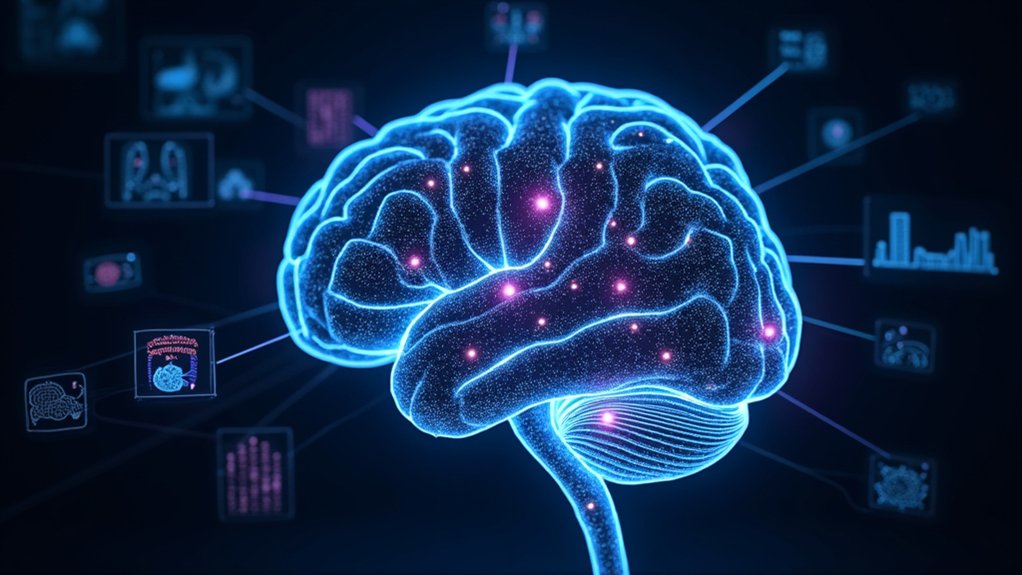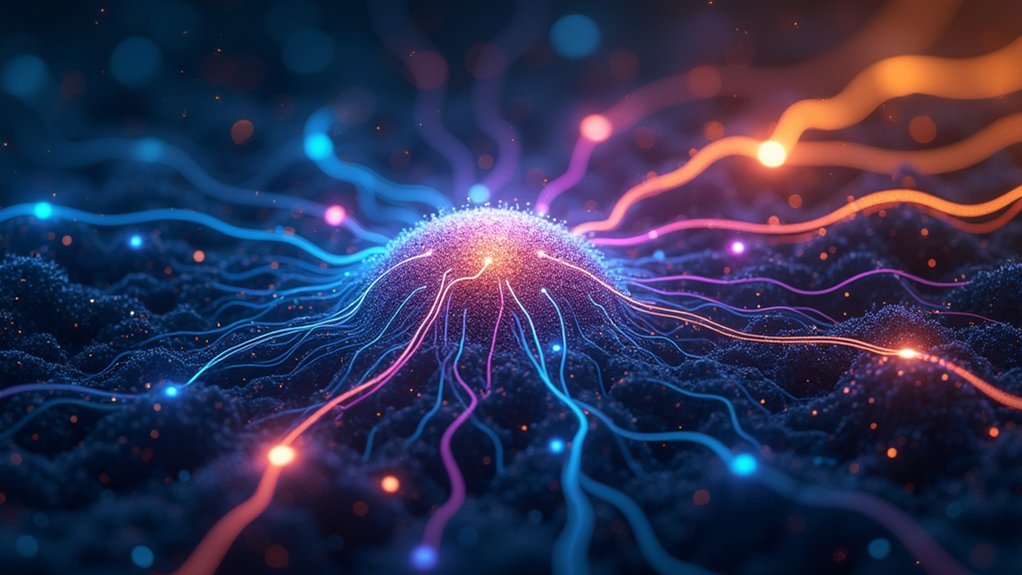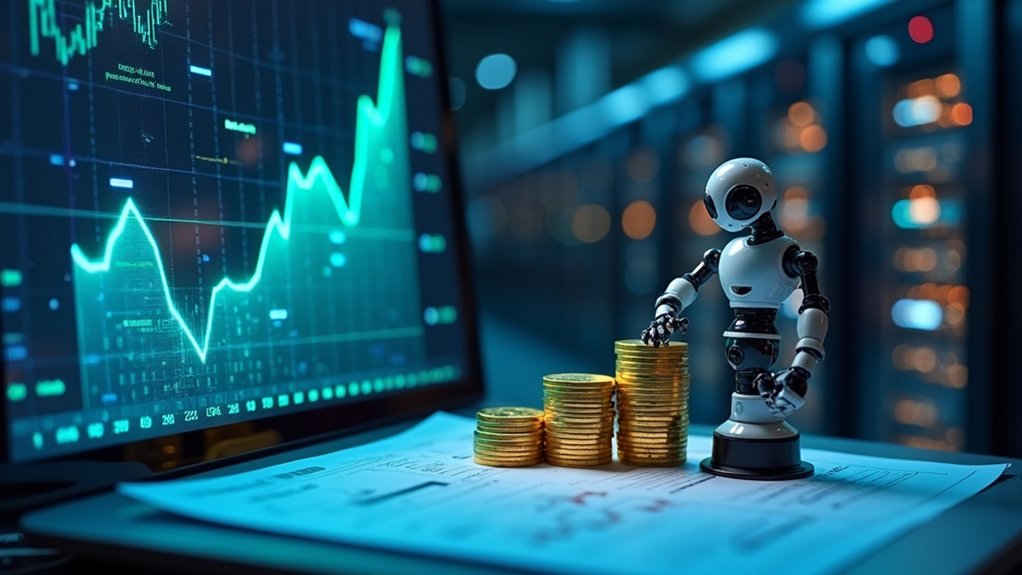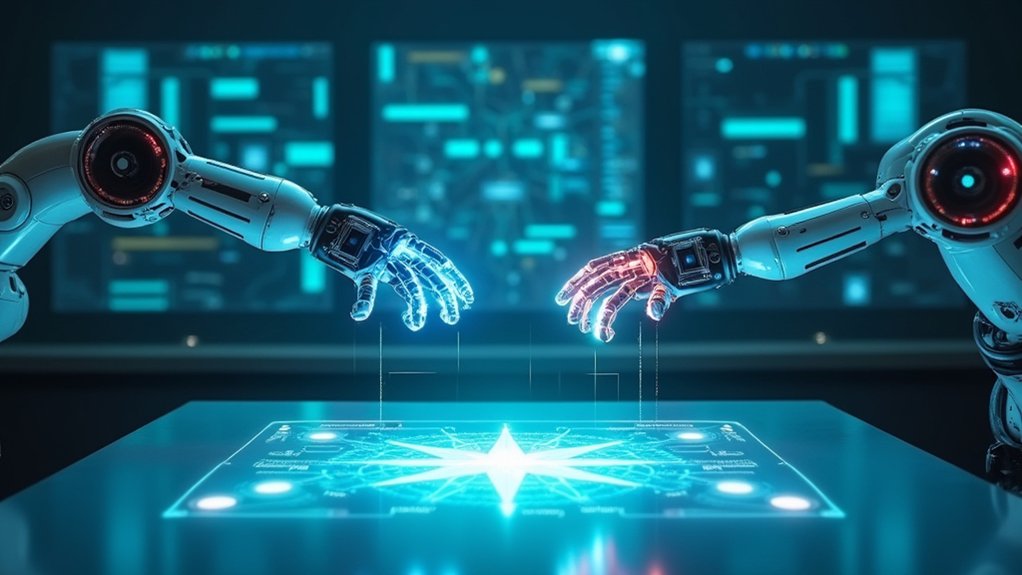AI matters because it's transforming the global economy, potentially adding $15.7 trillion by 2030. Companies are rapidly adopting AI for customer service, cybersecurity, and inventory management. Beyond business, AI improves healthcare diagnosis, education, and urban planning. While creating millions of new jobs, AI also raises important ethical questions about job displacement and bias. Countries and companies that master AI may gain significant economic advantages in the coming years.

As global companies race to adopt artificial intelligence, AI's impact on our world continues to grow at an unprecedented pace. The numbers tell a compelling story – AI could add $15.7 trillion to the global economy by 2030. It's no wonder that 77% of companies are already exploring or using AI in their operations, with the AI market growing 120% year-over-year.
This technology powers many tools we're starting to use every day. Natural language processing makes ChatGPT possible. Computer vision helps self-driving cars "see" the road. AI also analyzes massive amounts of data faster than humans ever could.
Businesses are finding many ways to use AI. About 56% use it for customer service, while 51% apply it to prevent cybersecurity threats and fraud. AI also helps with inventory management and improving customer relationships through better data analysis. The initial economic gains will be primarily driven by labour productivity improvements as firms augment their capabilities with AI technologies.
AI is revolutionizing business operations from customer service to cybersecurity, inventory management and data-driven relationship building.
Beyond business, AI is changing society in positive ways. It can improve how doctors diagnose diseases and create personalized learning experiences for students. In healthcare specifically, AI enables advanced imaging analysis to detect diseases earlier than traditional diagnostic methods. Cities use AI to become "smarter" by managing traffic and energy more efficiently. It even helps predict natural disasters and fight climate change. IDC's research predicts that every dollar invested in AI will generate 4.60 dollars in the global economy.
However, AI raises important ethical questions. As machines take over some jobs, what happens to those workers? AI systems can sometimes show bias based on their training data. These concerns have sparked debates about how to regulate AI and guarantee it's developed responsibly.
On the global stage, AI is reshaping power dynamics. Countries and companies that master AI may gain economic advantages over others. This has led to international competition in AI research and development.
Looking ahead, AI is expected to impact 40% of global jobs. While it may eliminate some roles, it will also create new ones. By 2025, AI could create 97 million new jobs while displacing 85 million others.
As AI continues to evolve, it's likely to transform how humans and machines work together to solve the world's biggest challenges.
Frequently Asked Questions
What Jobs Will AI Eliminate in the Next Decade?
In the next decade, AI will eliminate many routine jobs.
Data entry clerks face 90% automation, while assembly line workers could see 60-80% job loss.
Transportation jobs are highly vulnerable, with truck drivers facing 50-70% automation within 10-15 years.
Even professional roles aren't safe.
Paralegals could see 30-50% of tasks automated, and financial analysts may lose 25-35% of their work to AI systems.
How Can Businesses Prepare for AI Disruptions?
Businesses can prepare for AI disruptions in several ways.
Companies are focusing on employee training, with 37% of executives planning to invest in AI skills development. They're also updating infrastructure to integrate AI into existing workflows and automating repetitive tasks.
Many organizations are developing ethical guidelines to address bias and privacy concerns. Additionally, 80% of executives believe AI will drive innovation, prompting businesses to encourage experimentation and cross-functional collaboration on AI projects.
Is AI Development Prioritizing Ethics Over Innovation?
Current evidence suggests AI development isn't consistently prioritizing ethics over innovation.
While 127 countries have enacted AI legislation and organizations like UNESCO have created ethical guidelines, innovation often outpaces regulatory frameworks.
Many tech companies have established ethics boards, but commercial interests frequently drive development decisions.
The industry shows growing recognition of ethical AI as a competitive advantage, indicating a gradual shift toward balancing ethical considerations with technological advancement.
When Will AI Reach Human-Level General Intelligence?
Experts disagree on when AI will reach human-level intelligence. While most researchers predict it'll happen between 2040-2060, some tech leaders are more ambitious.
Sam Altman suggests 2030, Shane Legg estimates 2028, and Ray Kurzweil forecasts 2029. The Metaculus prediction community splits the difference at 2040.
Technical challenges remain, including developing common sense reasoning and true understanding rather than pattern matching.
How Can I Protect My Privacy From AI Surveillance?
Experts recommend several strategies to protect privacy from AI surveillance.
People can limit personal data sharing by using privacy-focused browsers and opting out of data collection when possible.
Digital security can be enhanced with strong passwords and two-factor authentication.
Users should control smart device usage by disabling unnecessary features and reviewing privacy settings regularly.
Staying informed about privacy developments and supporting privacy legislation are also important steps in the ongoing effort.









